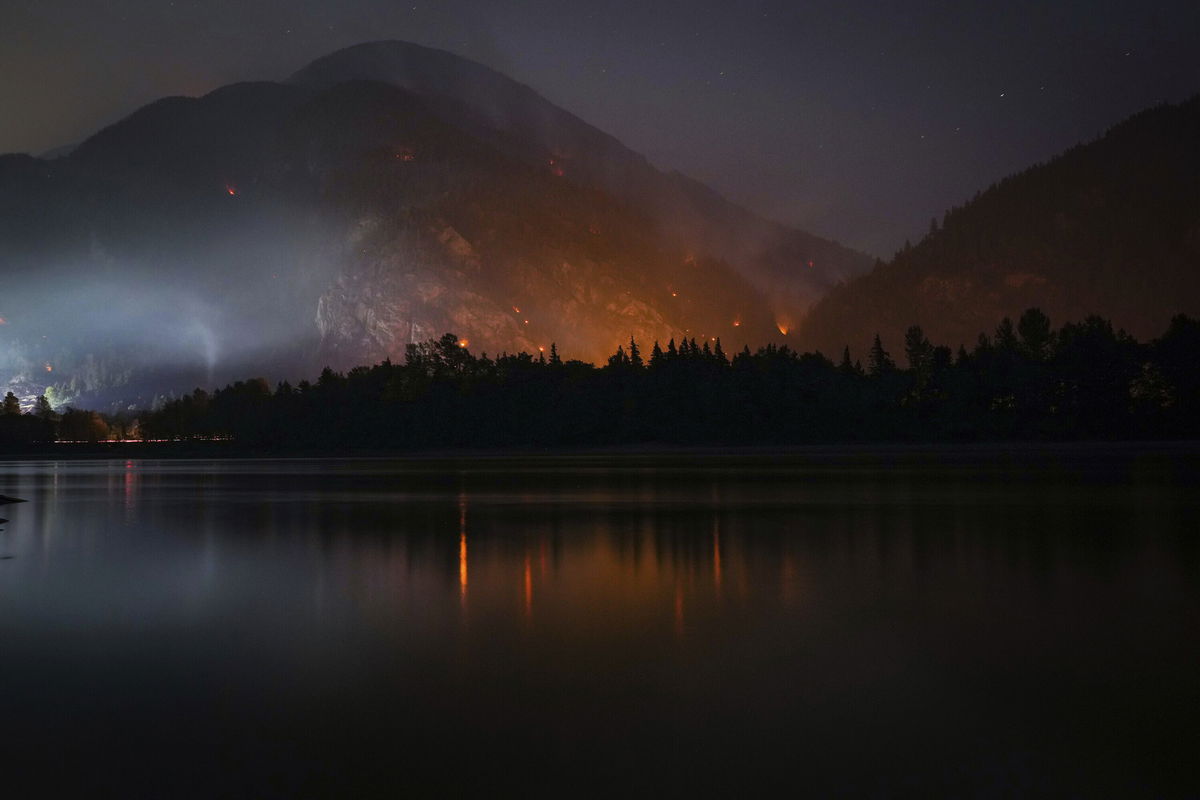Vancouver’s air quality affected as several wildfires rage

The Flood Falls Trail wildfire burns above the Fraser River in Hope
By Melissa Alonso, CNN
Wildfires burning in British Columbia and Washington state have triggered an air quality advisory for metro Vancouver, according to a Metro Vancouver district press release.
The smoke is contributing to high concentrations of fine particulate matter in the area, which pose the greatest risk to health, according to the US Environmental Protection Agency.
Local Canadian officials have urged residents to “postpone or reduce outdoor physical activity while PM 2.5 concentrations are high, especially if breathing feels uncomfortable.”
Fine particulate matter, also known as PM 2.5, refers to airborne solid or liquid droplets with a diameter of 2.5 micrometers or less, the press release explained. That’s 30 times smaller than the diameter of a human hair, according to the US EPA. PM 2.5 can easily penetrate indoors because of its small size, according to the press release.
Stagnant weather conditions are forecast to persist for at least the next few days, according to Vancouver officials, meaning the air quality is also not likely to change.
“Smoke concentrations may vary widely across the region as winds and temperatures change, and as wildfire behaviour changes,” the Metro Vancouver press release said.
There are currently nine active wildfires in Washington, according to a Friday update from Northwest Interagency Coordination Center. This includes the Cedar Creek Fire, which is 40% contained. It has burned 122,794 acres since it began on August 1, according to the Incident Information System.
There is also smoke from a wildfire on Cypress Mountain, a popular ski area in West Vancouver, “contributing to hazy conditions already being experienced in Metro Vancouver,” said the press release.
Due to unseasonably warm and dry conditions, Metro Vancouver officials have also extended lawn watering restrictions from Saturday until October 31 in order to better conserve the region’s drinking water, according to a Metro Vancouver water conservation advisory.
The-CNN-Wire
™ & © 2022 Cable News Network, Inc., a Warner Bros. Discovery Company. All rights reserved.
CNN’s Kelly Murray also contributed to this story.

